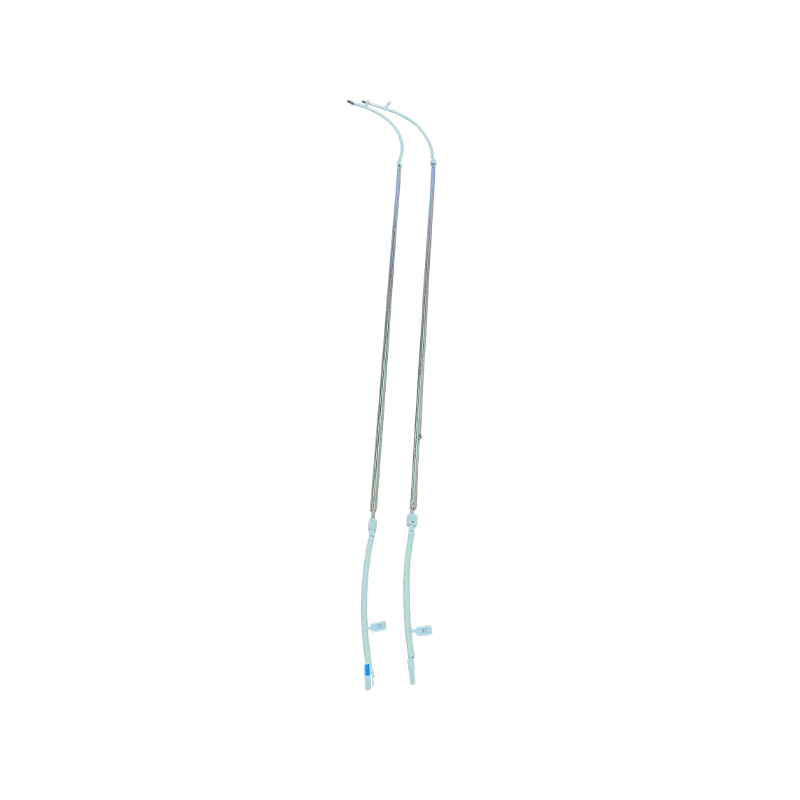The blow molding machine is a core piece of equipment in the plastic bottle production process, and its process precision directly impacts bottle quality. However, an often-overlooked detail—the stability and color rendering of the lighting system—can be a hidden killer that increases defective product rates. Traditional lamps, due to flicker and poor color rendering, can easily cause operator visual fatigue and even lead to missed bottle defects. This article will delve into how dedicated blow molding machine lamps, with their flicker-free and high color rendering technology, can solve the problem of visual errors in the process.Flicker and Insufficient Color Rendering: Two Major Visual Pitfalls in the Blow Molding Process1. Flicker: An Invisible Fatigue AcceleratorTraditional fluorescent lamps or low-quality LED lamps, driven by AC power, exhibit a flickering frequency (typically 50-100Hz) that is imperceptible to the naked eye. In high-speed blow molding machines, operators must stare at the rotating preforms and molds for extended periods. Flickering can force the eyes to frequently adjust focus, leading to:Visual fatigue: Short-term dryness, soreness, and even headaches;Slowed reaction time: Recognition of dynamic defects such as cracks and bubbles decreases;Increased false positives: According to industry research, the quality inspection missed rate can be as high as 15% under strobe conditions.Case study: A beverage packaging factory used strobe light tubes, resulting in a batch of products with deformed bottle necks entering the market. The recall ultimately resulted in losses exceeding one million yuan. The root cause was the operator's failure to promptly detect minor mold misalignment.2. Inadequate Color Rendering: The "Invisibility Cloak" of DefectsThe blow molding process requires extremely high transparency and color uniformity, but the color rendering index (CRI) of ordinary light tubes is typically below 80, making it unable to faithfully reproduce the plastic's true color. This can lead to:Misidentified color differences: A light blue bottle may appear grayish-green under low-light conditions, leading to misinterpretation as a raw material problem;Missed micro-defects: Air bubbles or black spots smaller than 0.5mm in diameter are difficult to detect in dim light;Delayed process adjustments: Operators are unable to accurately determine whether the bottle wall thickness meets standards due to light interference.Data support: Experiments show that increasing the color rendering index from 70 to 95 can increase quality inspectors' accuracy in identifying micro-defects by 40%.Flicker-Free + High Color Rendering: A Technological Breakthrough in Blow Molding Machine Lamps1. Flicker-Free Design: Eliminating Visual Distraction from the Essential Light SourceDC Drive Technology: Utilizes a constant current power supply instead of the traditional AC drive, completely eliminating flicker caused by current fluctuations.High-Frequency Dimming Algorithm: Utilizes PWM (Pulse Width Modulation) technology to increase the flicker frequency to over 2000Hz, far exceeding the human eye's perception range (typically below 200Hz).Optical Filter Layer: An anti-glare coating is added to the lamp surface to reduce direct light interference and enhance visual comfort.Result Verification: After a mineral water production company switched to flicker-free lamps, operator complaints of visual fatigue during a single 8-hour shift decreased by 70%, and mold fine-tuning response speed increased by 25%.2. High Color Rendering Performance: Sharply Restores the Natural Color of PlasticsHigh CRI Lamp Beads: Utilize LED chips with a color rendering index (CRI) ≥95, achieving color rendering similar to natural sunlight (CRI = 100);Full-Spectrum Lighting: Precisely tuned wavelengths are achieved through phosphors to cover the entire visible light band (400-700nm), eliminating color cast;Uniform Light Field Design: A diffuse reflector ensures uniform light coverage of the mold area, eliminating shadows and blind spots.Application Scenarios:Quality Inspection of Transparent Bottles: High CRI light clearly reveals "rainbow patterns" caused by uneven bottle wall thickness;Masterbatch Adjustment: Operators can accurately determine whether the added blue masterbatch meets the specified dosage;Night Shift Production: A flicker-free and high color rendering combination significantly reduces misjudgment rates during nighttime operations.Selection Guide: How to Choose the Right Lamp for a Blow Molding Machine?1. Core Parameter Comparison
| Parameters | Traditional lamp | Special lamp |
| Flicker depth | 30%-50% | <1% |
| Color rendering index | 60-80 | ≥95 |
| Lifespan | 8,000 hours | 50,000 hours |
| Applicable temperature | -10°C to 40°C | -20°C to 60°C |
2. Scenario-Specific RecommendationsHigh-speed production lines: Prioritize lamps with a response speed of <0.1ms to avoid smearing during high-speed rotation.High-temperature workshops: Select silicone-sealed lamps with a temperature resistance of over 100°C to prevent deformation.Cleanrooms: Select fully enclosed lamps with an IP65 protection rating to avoid dust contamination.Lighting Upgrades: An Invisible Enhancer for Blow MoldingIn today's lean manufacturing industry, blow molding machine lamps are no longer just a "lighting tool" but a critical component affecting quality, efficiency, and cost. By eliminating visual distractions with flicker-free technology and revealing the true nature of the process with high color rendering performance, companies can achieve:Reduced defect rates: Fewer missed defects and less raw material waste;Capacity release: Improved operator efficiency and greater overall equipment efficiency (OEE);Brand protection: Avoiding the risk of market recalls due to quality issues.With the development of Industry 4.0, blow molding machine lamps will be integrated with AI visual assistance. By synergizing light and cameras, they can achieve real-time defect identification and automatic adjustment of process parameters. And all of this starts with a flicker-free, high-color rendering lamp.

